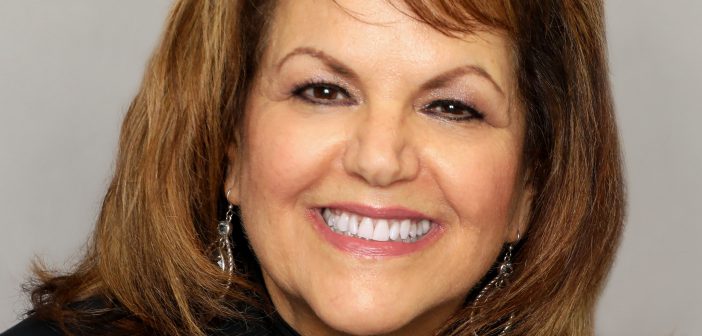An exclusive Today’s Hotelier interview with Frances Kiradjian, founder & CEO of the Boutique & Lifestyle Leaders Association
By Zohreen Ismail
What are some marketing strategies boutique property owners use to set them apart from brands?
They ensure their marketing programs are the counter-culture of corporate. This means more transparency about their story, more personal interactions with guests, getting the founder or owner involved as well as their team. They get their audience more involved as well and show a very caring attitude. You might get a personal letter from the GM during your stay, whether or not you had an issue, or a customized invitation from Guest Services to enjoy a free drink at the bar. Boutique hotels are great at the ability to design amazing digital strategies from websites to email campaigns to engaging ads. Their freedom of expression is not limited by policies and procedures, thus creativity is fueled by the imagination.
In what ways do boutique properties appeal to international guests?
Boutique properties are more intimate and experiential than some branded hotels that call their sub-brands “boutiques.” Travelers are looking for that Instagrammable moment and boutiques have a unique inner sense of how to create this. From being greeted with a warm genuine smile upon your arrival, to checking out and being told, “We hope your stay was amazing.” When those personal touch points hit home, that’s when you can tell that the staff genuinely cares about your experience. This is not to say that some branded hotels don’t also use these practices, but somehow, guests seem to be able to smell/sense the real from the forced, the small entrepreneur vs. the asset-controlled ‘bottom line matters most’ owner.
As labor shortage is a challenge right now for hotel owners, how are boutique owners tackling this problem?
Boutique owners or managers, depending on their situation, are able to consider hiring recently retired staff members who may desire to work various positions within the hotel on a short-term or even longer-term basis. Modern elders (as Chip Conley coined the term) are associates in their 50s or 60s or even 70s who are enthusiastic to continue working much longer in life and thus, they bring a new sense of pride and passion to their work, let alone a ton of great experience. Owners may also seek out interns, not just from hospitality schools, but from other specialty institutions such as design, international relations, communications, culture and more who can bring their talent to the hospitality space and add their own sense of lifestyle and work ethic to the job.
Do owners of boutique hotels use data to drive revenue? What kind of data are they looking at?
I would say that all boutique hotels pretty much use some form of data to drive revenue, whether it is utilizing a Revenue Management program like Rainmaker to ensure their ADR is strategic and rate-focused, or utilizing all the programs available to them today such as iVvy to help manage, market, and report on the value of utilizing/renting their spaces, i.e., restaurant/bar, event space, or their lobby. There are so many data elements to consider, so it is important for a hotel to take advantage of these and ensure it’s included in their marketing, sales, and operational plans. Weighing in on Trip Advisor scores and Yelp for your F&B establishments must be a routine, daily check, as bad reviews could cause your guests to stay away. Your website conversion data is of utmost importance, because if your visitors are not sticking around and getting to that booking link, your numbers will suffer. The experience you’re giving them digitally needs to match what they can expect on property.
Would you say the boutique hotel market is a global trend?
You always will have a group of travelers or investors that are more attracted to the boutique hotel experience for personal reasons. The trend has definitely grown though, particularly since our organization launched in 2009. We’ve seen a steady drip from both sides of the spectrum. I spoke at a business travel event recently and managers are ensuring they have a nice supply of boutique hotels in their corporate travel programs. Their travelers also are demanding more boutiques to select from. On the investor side, the capital markets are opening up more and more to smaller groups without a big chain attached to the asset. We hear this at all of our conferences and when we do surveys for hoteliers.
What industry disruptors are boutique hotels finding to be most challenging?
Mixed-use buildings that may have a few rooms and create an experience but don’t use the word ‘hotel.’ Airbnb still creates the need for an awareness that is necessary for owners and asset managers in order to monitor lost bookings. The VRBO’s of the internet are also ones to be watched from both a leisure and business traveler perspective, particularly in major cities. The big chains’ ‘boutique’ brands are growing exponentially as well. I wouldn’t call them disruptors per se, but they have deep pockets and continue to add to their ‘boutique’ mix through acquisition.
Often times, U.S. boutique hotel owners are viewed as the movers and shakers of the hospitality industry. Do you think this perception is true around the world as well?
In many places, they are the trend, the movers and shakers for sure. We call them “disruptors” as they are uncomfortable being put in a box without setting their own guidelines to follow. There isn’t one large chain that is not following us on social media or subscribing to our weekly newsletter. The trend is set by the consumer; they are the ones driving the boutique movement. We see it as growing and growing with no end in sight. Let’s face it, it’s an exciting subject to talk about as well as experience. One of our late great hoteliers, Mike Muir of Best Western, once said in a BLLA interview, “There’s a little bit of boutique in all of us!”
In what ways do boutique hotels provide a unique guest experience in terms of the interior design of boutique properties?
Per BLLA’s past research White Paper, boutique design includes many high-quality, in-room features and social spaces. Living rooms, libraries with social events, and shared lobbies that have features like F&B hubs and co-working spaces all produce a vibe of activity and energy that guests may attribute to a more authentic, unique, and positive experience – one they’re happy to share with their social audiences. Noteworthy is that the passion of the designer, whether self-propelled or suggested by owners, will have a profound effect on the resulting design. That’s why it’s so important to select a designer whose passions are aligned with the developer, whether that’s the owner or the manager.




